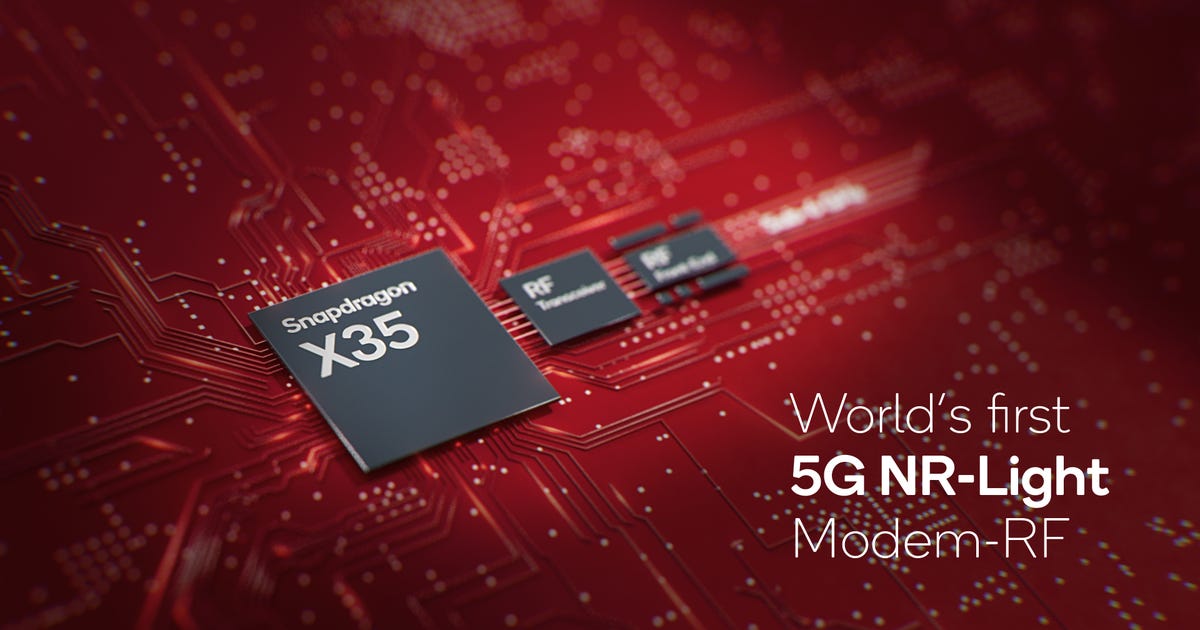
5G networks have delivered fast speeds and bandwidth to smartphones for years, but not to wearables. That’s expected to change next year as a new Qualcomm modem will make it possible to hook your smartwatch or other wearables up to next-gen 5G mobile networks.
Qualcomm on Wednesday revealed its Snapdragon X35 modem chipset, which will connect handheld devices to 5G networks, replacing older modems that linked gadgets to slower 4G LTE. Devices will have as fast or faster connection speeds while consuming less power, which will help designers connect devices — from wearables to mixed reality glasses — to 5G.
Qualcomm didn’t confirm any products that will use the X35 but said the first set of devices to use it will arrive in the first half of 2024. Some of these may be consumer products like smartwatches while others could be commercial use like in high-end medical wearables or industrial sensors. The X35 could even end up in lower-end laptops like Chromebooks to connect to 5G networks.
“These applications require extremely small form factors, very high power efficiency and simplicity of design so that [device manufacturers] can actually tailor the product in these form factors,” Qualcomm senior director of engineering Guatam Sheoran said in a briefing.
This modem will likely arrive in mid-tier wearables and IoT devices rather than premium phones. It’s not as powerful as, for instance, the X70 modem included in the latest Samsung S23 phones, which is capable of multi-gigabit download speeds. Instead, the X35 has a maximum of 220 Mbps download speed, which is still more than fast enough to handle wearable and IoT device needs, and deliver 5G benefits of wider frequency range and lower latency, Qualcomm said. This fits moderately priced devices that don’t need top-tier connectivity, what Qualcomm calls 5G NR-Light or reduced capacity (RedCap).
Beyond speed, devices with Qualcomm’s smaller-format modem will benefit from 5G’s expanded bandwidth compared with 4G LTE. The X35 connects to many spectrum midband 5G frequencies in the C-band, CBRS, 3.5 GHz, and 4.9 GHz ranges, which offer faster download speeds than low-end 5G but more coverage area than the ultra-fast millimeter wave. The X35 can also fall back on 4G LTE if 5G connectivity gets spotty.
